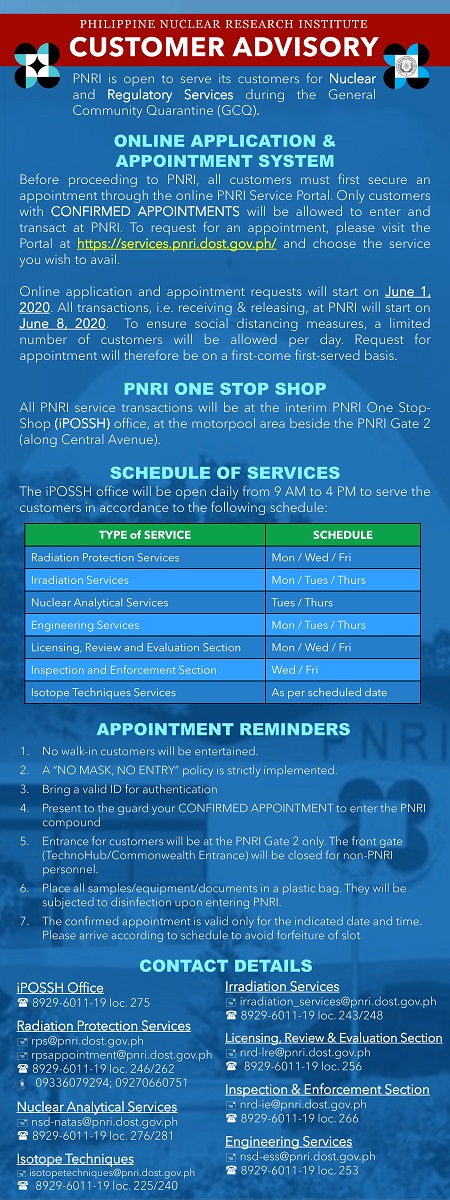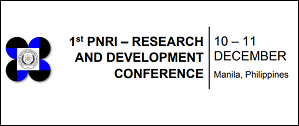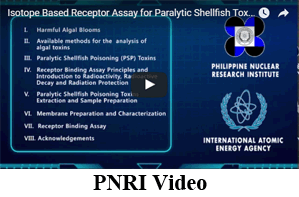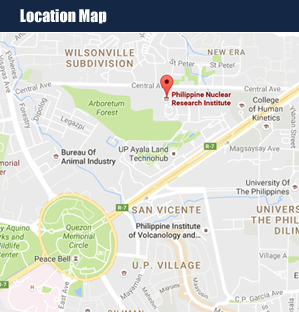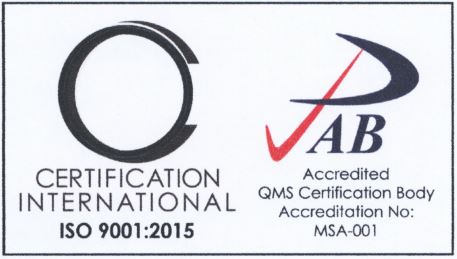A spate of regional and national activities marked the months of June and July, making it a busier-than-usual mid-year for the Philippine Nuclear Research Institute.
Last June 20, a Seminar on Nuclear Power was conducted at Traders Hotel Manila, gathering some seventy participants representing the academe, energy, media, business, and government sectors.
The high-profile workshop that was spearheaded by the National Academy of Science and Technology was organized with the aim of gathering relevant information on nuclear power and gaining insights from the Philippines’ long-term energy plan and from there draw the prospects of nuclear power in the country’s energy mix.
Select speakers from the nuclear industry were invited to shed light on issues such as nuclear safety, radioactive waste management, and the human resource development requisites of a nuclear power programme. A paper contribution from the International Atomic Energy Agency (IAEA) on “Global Energy and Technology Trends†was also read at the workshop.
A plenary presentation of the output from the break-away sessions which tackled Nuclear Safety, Nuclear Power and the Environment, and Sustainable Energy Development culminated the one-day affair.
On the week that followed, a Workshop on CTBTO International Cooperation for States from Southeast Asia, the Pacific and the Far East was conducted through the joint efforts of the Comprehensive Nuclear Test Ban Treaty Organization (CTBTO) Preparatory Commission, the Philippines’ Department of Foreign Affairs, and the PNRI.
The activity, which was spread over three days, provided regional participants with an overview of the Treaty, the current status of the CTBT verification regime, and perspectives on international cooperation within the region.
A total of fifty-five delegates representing fifteen countries from the Southeast Asia, Pacific and Far East region arrived for the workshop which also saw the participation of speakers from Australia, Korea, Japan, the Intergovernmental Oceanographic Commission of UNESCO, the United Nations Office for Disarmament Affairs (UNODA), and the CTBTO Preparatory Commission.
Following the workshop, the Executive Secretary of the CTBTO PrepCom, H.E. Tibor Toth, visited the Philippines to interface personally with the authorities involved in the Treaty activities and to further promote the Treaty’s universal ratification and immediate entry into force.
Simultaneous with that visit during the second week of July, a Regional Training Course under the framework of the IAEA Regional Cooperative Agreement was held at the Linden Suites, Pasig City.
The Course dealt with the Promotion of Radiation Technology Utilization and gathered a total of twenty-four local and international participants involved in the regional project on Radiation Processing Applications for Health and the Environment. The training was specifically aimed at informing the participants of the increasing role of radiation technology in health-care applications, apprising them of value-added products derivable from synthetic and natural polymer-based materials, and providing awareness on the technical, economic and social advantages of using radiation in wider areas of application.
An IAEA mission on Training Needs Assessment was likewise received on the week of 9 to 13 July, intended to assist the Institute in conducting its own evaluation of HRD requirements, particularly in line with nuclear safety. The mission team consisted of Mr. Shahid Mallick of the Pakistan Nuclear Regulatory Authority (PNRA) and Ms. Maria Josefa Moracho Ramirez of the IAEA.
Lastly, on the week of 23 to 27 July, another training activity saw its successful conclusion with the wrap-up on Friday of the IAEA-sponsored Regional Training Course on Self-Assessment of National Regulatory Infrastructure by Member States, Using the RASSIA Protocol. (The acronym RASSIA stands for Radiation Safety and Security of Radioactive Sources Infrastructure Appraisal.) A self-assessment tool newly-introduced by the Agency is in the process of being tested, refined and promoted to a wider base with a view of building competence in the control of radiation sources through a regular review of national regulatory programmes.
Twenty-five foreign participants from East and West Asia, together with four local participants and three observers, underwent the training that was conducted within the purview of the regional project on "Strengthening National Regulatory Infrastructure for the Control of Radiation Sources".















